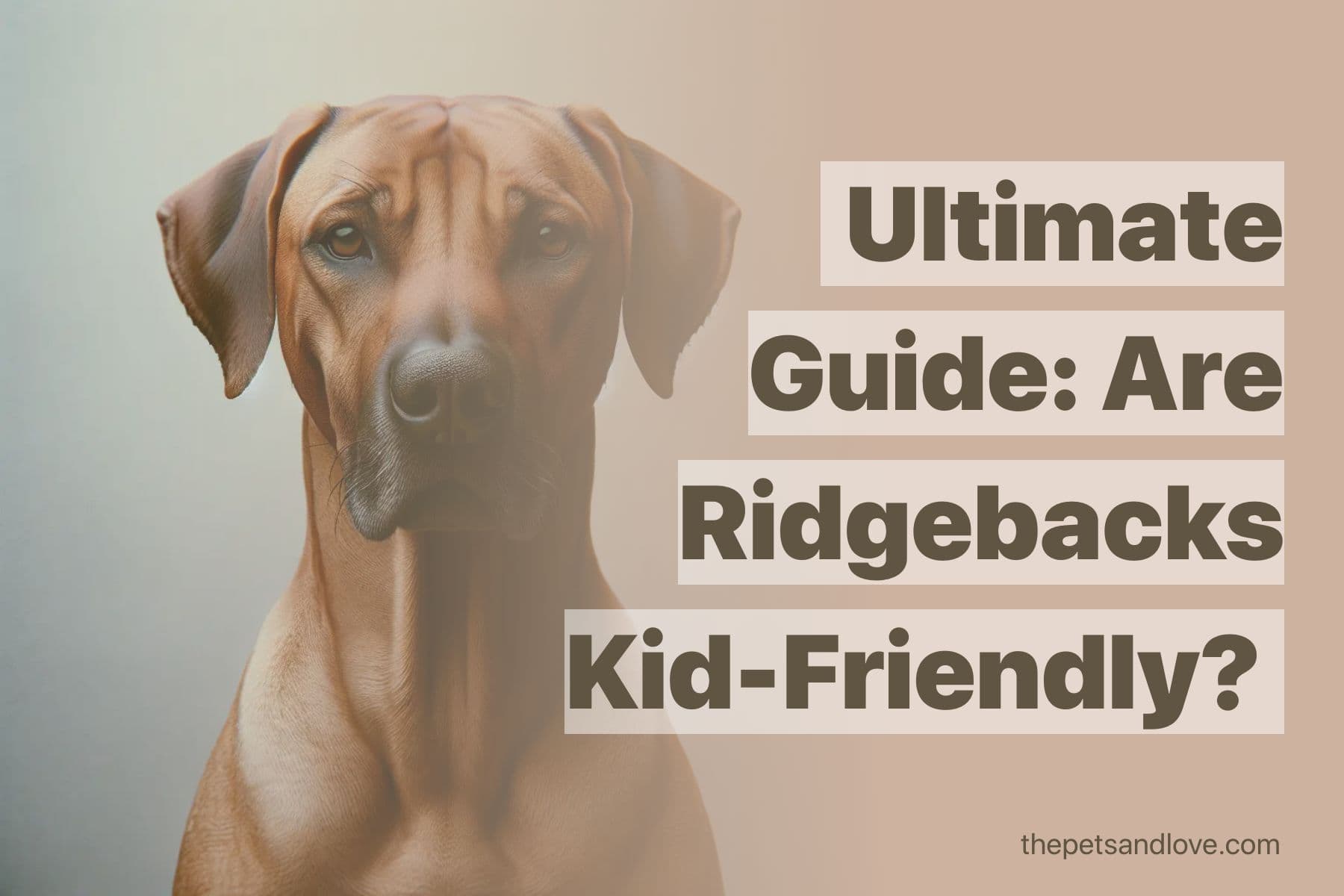Is the Rhodesian Ridgeback a Good Family Dog for Kids?

Are Rhodesian Ridgebacks Good with Children? Here’s What You Should Know
As someone who lives with a Rhodesian Ridgeback, I can tell you they’re an incredible breed — loyal, intelligent, and full of personality. But when it comes to kids, the answer isn’t just a simple yes or no. It really depends on the dog, the child, and how both are raised and managed.
The Good News: Ridgebacks Can Be Amazing with Kids
Rhodesian Ridgebacks are naturally protective and loyal, which can make them excellent family dogs. They’re known for being gentle with their own pack, and they often form strong bonds with the kids they grow up around.
Here’s what makes them a great match for families:
- Protective but not aggressive – They’re watchful and will look out for your kids without being overly reactive.
- Playful and energetic – Great for active children who love running around the yard or playing fetch.
- Generally calm indoors – Once their energy is burned off, they’re happy to relax at home.
But here’s the catch: Ridgebacks are big, strong, and independent-minded. Without proper training and boundaries, they can become too much for a young child to handle — or even accidentally knock them over during playtime.
How to Set Everyone Up for Success
Having a child and a Rhodesian Ridgeback under one roof can be wonderful, but it requires effort on both sides. Here’s what’s worked for us:
1. Teach your Ridgeback the basics early
Start with training right away. Ridgebacks can be stubborn, so consistency and patience are key. Focus on commands like:
- Sit
- Stay
- Leave it
- Go to your bed (helps when they need a break)
- No jumping
Socializing your Ridgeback with other people and dogs early on also helps them become more adaptable and less reactive.
2. Teach your child dog-respect 101
This is just as important. Even the best dog can get overwhelmed or scared if a child behaves unpredictably. Here are simple rules we follow in our home:
- No touching the dog when they’re eating or sleeping
- No climbing on or hugging the dog
- Don’t chase the dog, especially if they walk away
- Avoid face-to-face contact
- Let the dog come to you
We also explain to kids that the dog’s crate or bed is their safe space. It’s off-limits, especially when the dog retreats there to rest.
3. Supervise, always
Even if your Ridgeback is a sweetheart, never leave them alone with a young child. Supervision is non-negotiable — it only takes a second for someone to get startled or hurt unintentionally.
4. Recognize dog body language
If your Ridgeback starts licking their lips, turning away, yawning when not tired, or tucking their tail — they’re uncomfortable. Teach older kids to spot these signs too, so they know when to give the dog space.
5. Set boundaries with visiting children
Kids who aren’t used to dogs may act in ways that stress your Ridgeback out — chasing, grabbing toys, hugging, or even teasing. When we have guests, we keep initial interactions to a minimum and supervise closely. If it’s a party or noisy gathering, we give our dog a break in another room or take them out for the day.
Some Activities Kids & Ridgebacks Can Enjoy Together
- Reading time – Many dogs love listening to a child read. It’s calm, quiet bonding time.
- Walks – Great exercise for both child and dog. We’ve found walks to be a safe space where kids naturally open up and chat — even to the dog.
- Tug of war (with a long rope) – It’s interactive and lets the dog burn off energy safely.
- Grooming – Brushing the dog can become a sweet, bonding routine.
Final Thoughts
Rhodesian Ridgebacks are not beginner dogs, but with the right training, structure, and respect, they can be fantastic family members — even with kids in the mix. It takes work on both sides, and it’s your responsibility to guide both your child and your dog toward a strong, respectful relationship.
If you’re willing to put in the time and attention, a Ridgeback can grow up to be your child’s loyal companion, protector, and best friend. Just don’t expect it to happen automatically — like any good relationship, it’s built over time.
Take the Quiz
Is a Rhodesian Ridgeback Right for You?
The Rhodesian Ridgeback is known for its strength, loyalty, and distinctive ridge of hair along its back. Discover if this athletic and protective breed is the perfect companion for your lifestyle by taking our quiz! Answer all questions below to discover your compatibility score and get personalized insights.
Question #1: What is the main reason you want a dog?
Question #2: How active is your lifestyle?
Question #3: How much time can you dedicate to your dog daily?
Question #4: What best describes your home environment?
Question #5: What size dog do you prefer?
Question #6: What personality traits do you want in your dog?
Question #7: How much grooming can you handle?
Question #8: Who else lives with the dog?
Question #9: Is this your first dog?
Please answer all 9 questions to see your results
